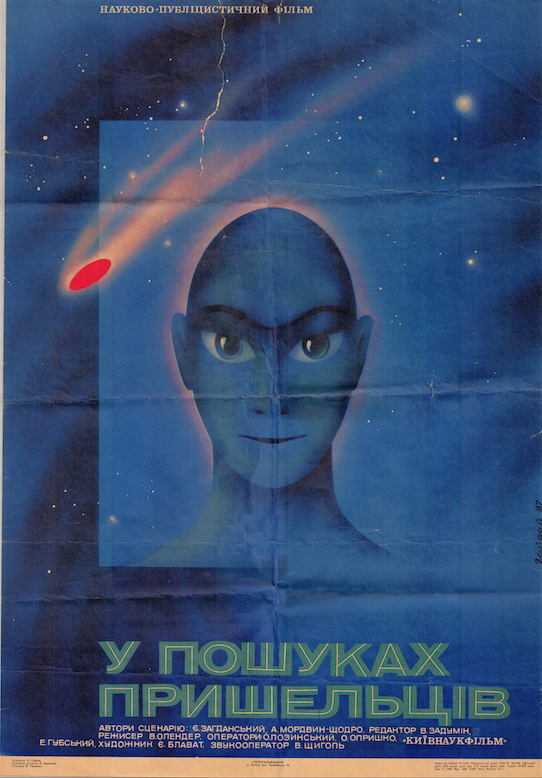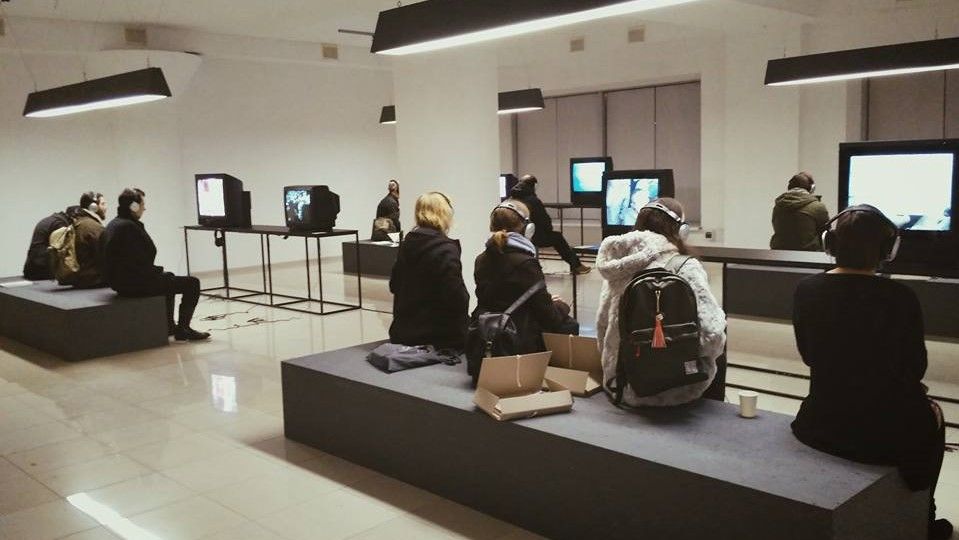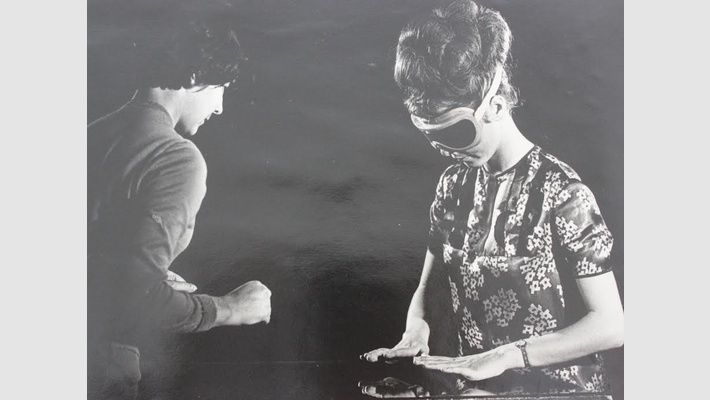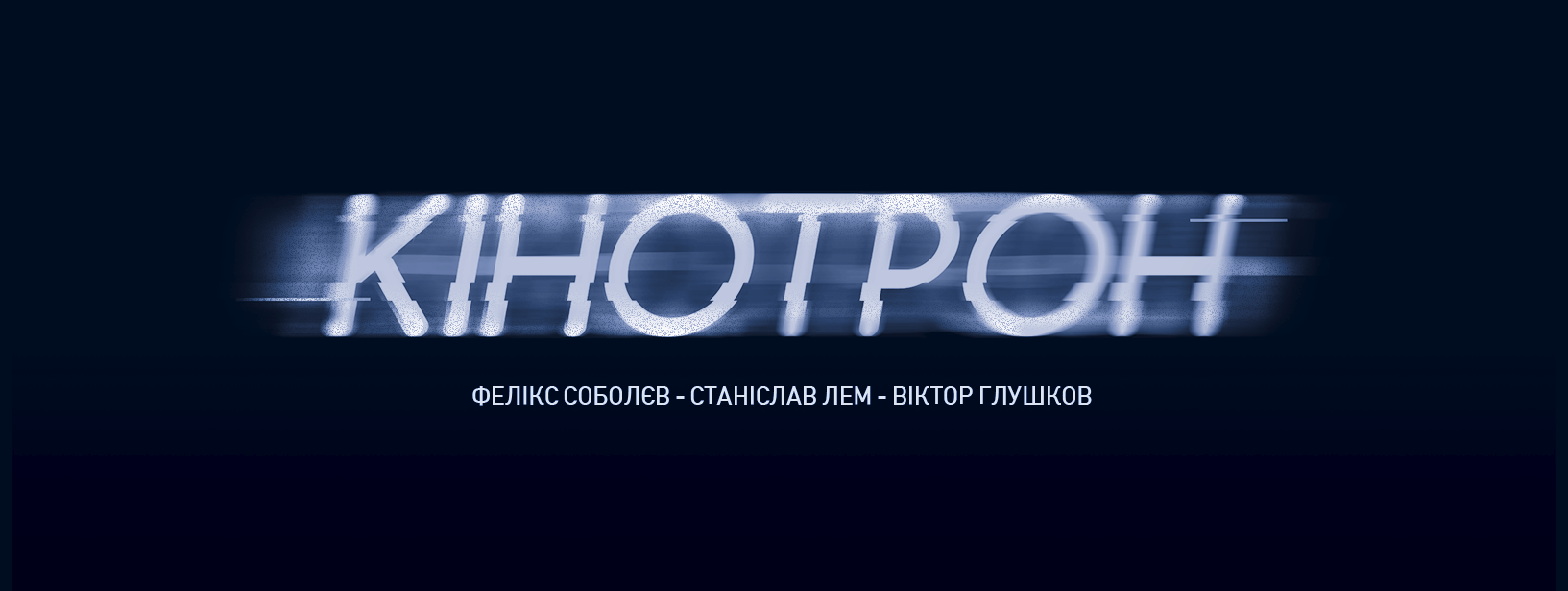



2016
Visual Culture Research Center (Kyiv, Ukraine); Sputnik Cinema (Geneva, Switzerland)
Curated with:
Ruslana Kozienko
Oleksiy Radynski
The exhibition examined a little-known phenomenon of Ukrainian film history: the experimental works of the representatives of the so called Kyiv School of Scientific Film, which emerged in the 1960s around the famous filmmaker Felix Sobolev. Sobolev’s films (Seven Steps Beyond the Horizon, Me and the Others, etc) were groundbreaking in showing that scientific film can be popular with the mass viewer while remaining experimental in its synthesis of art and science. Sobolev described the idea of kinotron as the “new form of film production” enabling a “powerful acceleration” of filmmaking and creative thinking in general. Unfortunately, this scheme, like many other Sobolev’s intentions, was never put into practice. The films of Sobolev’s school cover various spheres of contemporary science, from experimental sociology to astrophysics, from political science to cybernetics, which played a special role in the history of Ukrainian scientific film industry due to its collaboration with the Institute of Cybernetics founded by Viktor Hlushkov in Kyiv. In view of the renewed interest to the ideas concerning the acceleration and technological expansion of human capabilities, the concept of kinotron highlights the hidden capacities of the late Soviet era.
2016
Visual Culture Research Center (Kyiv, Ukraine); Sputnik Cinema (Geneva, Switzerland)
Curated with:
Ruslana Kozienko
Oleksiy Radynski
The exhibition examined a little-known phenomenon of Ukrainian film history: the experimental works of the representatives of the so called Kyiv School of Scientific Film, which emerged in the 1960s around the famous filmmaker Felix Sobolev. Sobolev’s films (Seven Steps Beyond the Horizon, Me and the Others, etc) were groundbreaking in showing that scientific film can be popular with the mass viewer while remaining experimental in its synthesis of art and science. Sobolev described the idea of kinotron as the “new form of film production” enabling a “powerful acceleration” of filmmaking and creative thinking in general. Unfortunately, this scheme, like many other Sobolev’s intentions, was never put into practice. The films of Sobolev’s school cover various spheres of contemporary science, from experimental sociology to astrophysics, from political science to cybernetics, which played a special role in the history of Ukrainian scientific film industry due to its collaboration with the Institute of Cybernetics founded by Viktor Hlushkov in Kyiv. In view of the renewed interest to the ideas concerning the acceleration and technological expansion of human capabilities, the concept of kinotron highlights the hidden capacities of the late Soviet era.



